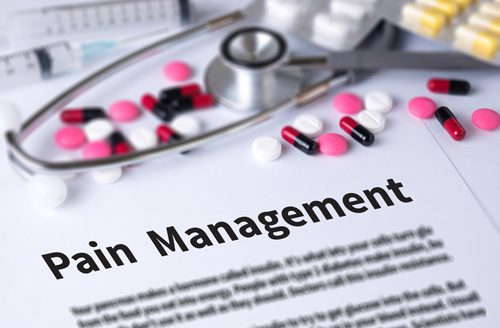 Pain management for people in addiction recovery has become a huge topic of concern due to the opioid epidemic in our nation.
Pain management for people in addiction recovery has become a huge topic of concern due to the opioid epidemic in our nation.
Physicians are presented with challenges when people with substance abuse issues are experiencing pain. On the one hand, they do not want to prescribe narcotics for fear of the individual relapsing or even possibly overdosing. On the other hand, they do not want a lack of adequate pain relief to lead the person to using drugs or alcohol to help manage the pain.
The American Psychiatric Association Task Force outlines the diagnostic criteria for substance dependence (addiction) in their Diagnostic and Statistical Manual of Mental Disorders as a maladaptive pattern of substance use, leading to clinically significant impairment or distress, as manifested in three or more of the following, occurring any time in a 12-month period:
- Tolerance as defined by the following:
- A need for increased amounts of the substance to achieve desired effect
- A markedly diminished effect with continued use of the same amount of the substance
- Withdrawal as manifested by either of the following:
- The characteristics of withdrawal syndrome for the particular substance
- The substance (or one closely related) continues to be taken to avoid withdrawal symptoms
- Substance is taken in larger amounts or for a longer period of time than intended
- There is a persistent desire or unsuccessful efforts to cut back on or control substance use
- Much time is spent on activities necessary to obtain the substance
- Important social, occupational, or recreational activities are given up due to substance use
- Substance use is continued despite knowledge of a persistent or recurrent physical or psychological problem that is likely to have been caused by the substance
Physicians who understand these elements of addiction can better treat their patients. For instances of acute pain (intense but short-lived pain, such as with broken bones or recovery from surgery), patients in recovery are usually treated the same with pain relief medications as those that have not suffered from substance abuse. The issues arise with those individuals who experience chronic pain, pain that persists (such as with an old injury, arthritis, nerve damage, cancer, and more).
Physicians seek non-opioid pain medications and techniques for those in recovery who suffer with chronic pain. Although opioid medications are useful for quick, short-term pain relief, they are not useful for long-term use because of the high risk for addiction. Topical medications may be used as a replacement. Lidocaine patches are as effective as Naproxen for managing localized pain such as carpal tunnel.
Physicians who build a relationship of trust with their patients are better able to treat them. Many people in recovery will suffer with pain instead of taking medications to help ease the pain for fear of becoming addicted, or “relapsing.” This is an extremely touchy situation. It’s very important to let your doctor know your history with addiction. Avenues such as the ones mentioned above and/or holistic treatments, such as acupuncture, can be tried to manage pain safely.
If you are in recovery from addiction and suffering with chronic pain, it is wise to research other ways to manage your pain. Opioids should be taken as a last resort.



